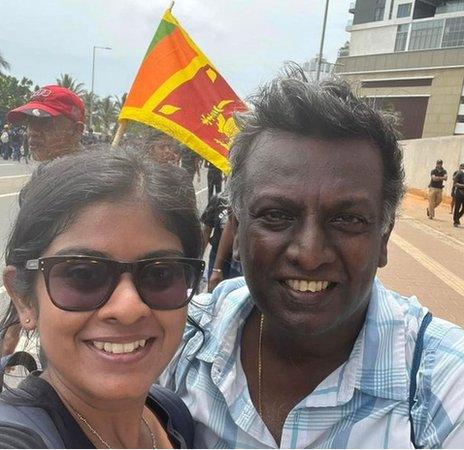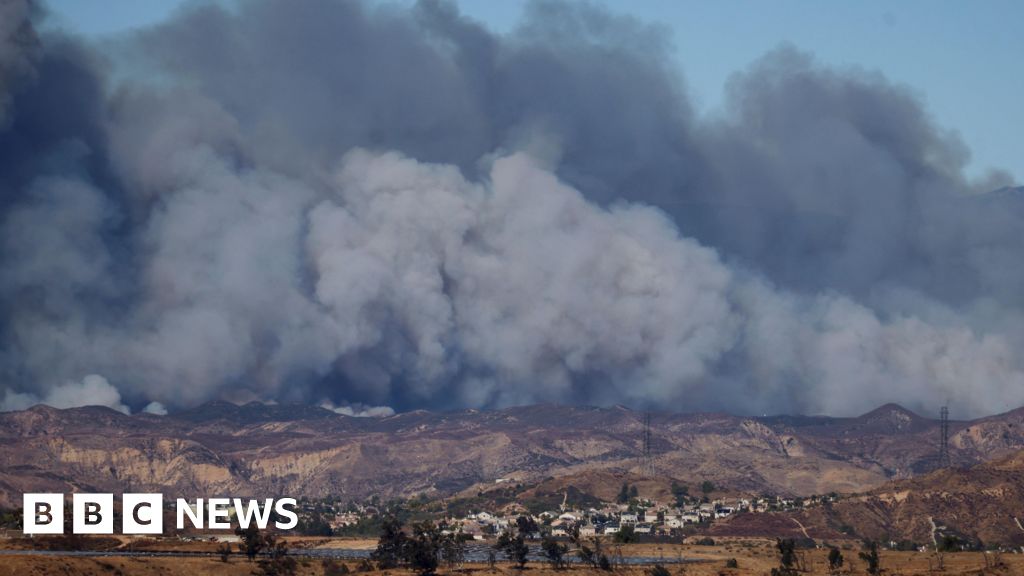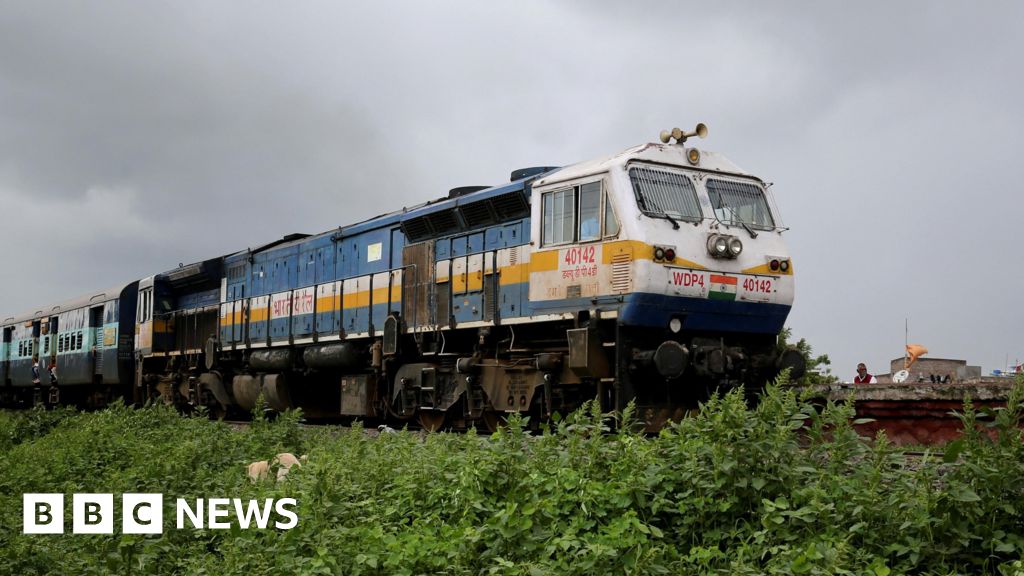ARTICLE AD BOX
By Hayley Clarke
BBC News
 Image source, Dinithika Appuhamy
Image source, Dinithika Appuhamy
Dinithika and her father at Saturday's protests in Colombo
Saturday's historic protests in Sri Lanka, which appear to have persuaded both the president and the prime minister to resign, were a "huge show of willpower by the public", demonstrator Catherine Mack told BBC News.
"We just want change, for the better - it's not violence," says the mother-of-two from the capital, Colombo.
"Having lots of people protest and come out on to the road and demand change - it's really wonderful. It has changed thinking for the better. I hope it will last."
University lecturer Dinithika Appuhamy, 27, who also turned out for the protests in Colombo, says the unity shown by the Sri Lankan people and what they have achieved are cause for celebration, though she cautions that the leaders' resignations are not yet official.
Both women are keenly aware of the country's dire economic situation and are hoping that new leadership will restore the country's fortunes.
Dinithika can afford the essentials for living, like food and medicine, but she says she knows a "lot of people who can't".
Many people in Sri Lanka do not have refrigerators, she says, so they drink powdered milk instead of fresh. Supplies have now run out, meaning many babies and children do not have milk to drink.
Image source, Dinithika Appuhamy
Image caption,Whilst essentials are still in the supermarket, the powdered milk shelf is empty
Some people are living on one meal a day or attempting to grow their own food, she says, but "if you live in an urban area, you can't magically just grow food in a few months' time".
Fertiliser is now so expensive, she says, that it can usually only be found on the black market.
Medical supplies are also running short. Dinithika's father is a cancer patient and recently had his thyroid removed. He relies on daily medication for survival.
"We've stocked up on medicine for six months but beyond that we don't know what to do," she says. "My sister lives in the US, so I hope that she can send medicine to us. But not everyone in Sri Lanka has a daughter in the US."
The lecturer herself has felt the impact of the crisis.
She returned to live with her parents in Marawila, 70km (43 miles) from Colombo, a few months ago after power shortages left her little choice.
In the relatively rural area where she lives now, internet connections are unstable, making recent government guidance to teach from home difficult.
"It's basically impossible to go in," she explains. "Roads are blocked due to the fuel queues. My internet connection isn't great. Some of my students live in even more rural areas than I do. So it's almost pointless sometimes.
Image source, Dinithika Appuhamy
Image caption,An empty petrol station in Dinithika's area, now that fuel supplies have run dry
"Even if we could go into university, there's no power sometimes. I work in an engineering facility. Without electricity you can't do practicals."
When asked about what her future holds, Dinithika fights back tears. "I had huge prospects for my future," she says. "It's just all sort of gone down the drain. It's come to a point where surviving is the number one priority."
Leisha, a working mother-of-three from Colombo who did not want to give her surname, protests against the government three to four times a week, and describes how fuel queues have now reached their protest site - 3km from the petrol pumps.
"Now the rest of the world is getting back to life as normal and we're stuck with all of this," she says, accusing the country's leaders of mismanagement and incompetence.
Image source, Leisha
Image caption,Leisha protesting at Gotagogama on April 13
Wary of politicians who only say "something to keep you happy for a couple of weeks", she fears Sri Lanka will come to a standstill soon.
Catherine is one of the luckier Sri Lankans who have food, access to private healthcare and a big garden.
For "middle income" families like hers, the crisis has meant "inconvenience rather than actual hardship".
Image source, Catherine Mack
Image caption,Saroja, Catherine's cleaner and neighbour, has no choice but to cook on an open flame in her flat because of fuel shortages
But some of the women who join her at the daily protests earn a maximum of 1,500 Sri Lankan rupees (£3.40, $4.10) per day which "they need to stretch to make ends meet".
With bread now at an unaffordable Rs 170, the women and their families have rice for all three meals, with a small serving of vegetable and coconut sambol and sometimes soya meat. Eggs, which cost Rs 50 each now, are rarely on the menu.
Many families are forced to cook on open flame in small enclosed spaces, putting themselves and their families in danger.
Catherine hopes that a new multi-party government will be formed and Sri Lanka will regain the trust of the international community, leading to aid donations.
"So we can start to get out of this mess," she says. "This is the hope and why we are all protesting."
"The last few days have got to a breaking point," says Dinithika. "People don't care any more. Why bother working when everything has gone to hell?"
She says she hopes the rest of the world will understand "how much the Sri Lankan people want the government to go".

 2 years ago
19
2 years ago
19








 English (US) ·
English (US) ·